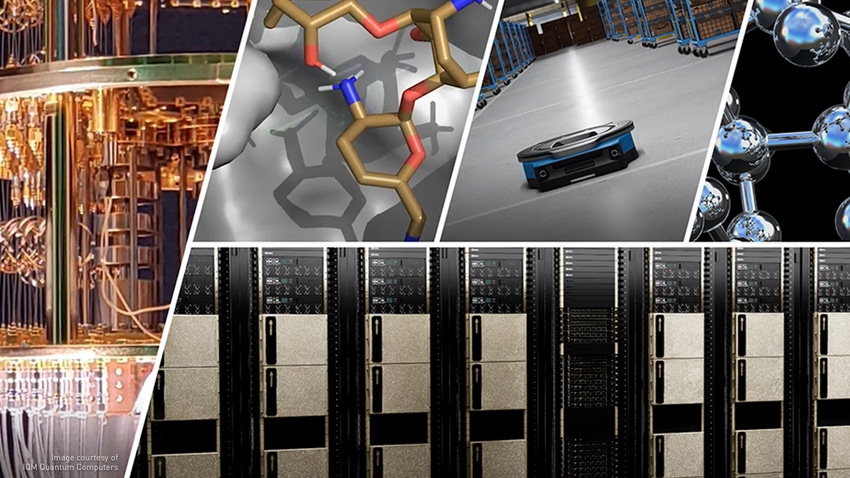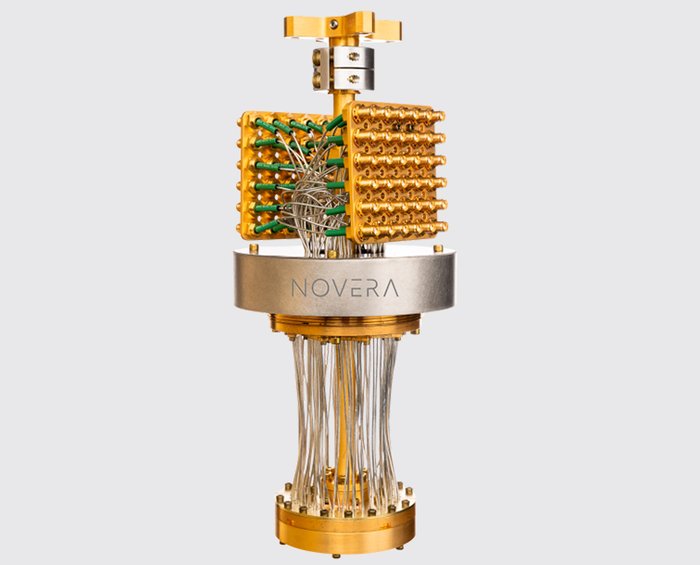
Connects decision-makers and solutions creators to what's next in quantum computing
Unified programming platform aims to accelerate application development

Nvidia has announced a unified computing platform that the tech company says will accelerate quantum computing research and development.
Nascent quantum computing use cases, such as AI, high-performance computing (HPC), health care and financial services, use a hybrid platform of a quantum processor and a classical computer.
Nvidia’s quantum optimized device architecture (QODA) is an open programming model that aims to make hybrid quantum-classical programming more accessible.
It is designed to enable systems developers to easily add quantum computing and simulated quantum processing to existing classical applications.
“Scientific breakthroughs can occur in the near term with hybrid solutions combining classical computing and quantum computing,” said Tim Costa, Nvidia director of HPC and quantum computing products.
“QODA will revolutionize quantum computing by giving developers a powerful and productive programming model,” he said.
QODA works alongside cuQuantum, Nvidia’s quantum circuit development software, to enable developers to build complete simulated quantum applications on GPU-accelerated supercomputers.
QODA Collaborations
Nvidia also announced several QODA partnerships at the Q2B conference in Tokyo.
These are hardware providers IQM Quantum Computers, Pasqal, Quantinuum, Quantum Brilliance and Xanadu, software providers QC Ware and Zapata Computing and supercomputing centers Forschungszentrum Jülich, Lawrence Berkeley National Laboratory and Oak Ridge National Laboratory.
Quantum Brilliance’s room-temperature diamond quantum microprocessor exploits the hybrid approach that QODA supports.
“Nvidia revolutionized high-performance computing, and its new QODA platform is a bold step forward in innovating the quantum industry as well,” said co-founder and chief scientific officer Marcus Doherty.
“It is essential that near-term quantum computing requires coupling of classical and quantum hardware to realize the technology’s potential. This allows sources of classical computing power such as an Nvidia GPU to be much closer to the quantum processing unit. The Nvidia QODA platform provides the unifying framework for this vision.”
“Quantinuum is partnering with NVIDIA to enable users of the H-series quantum processors, powered by Honeywell, to program and develop the next generation of hybrid quantum-classical applications with QODA,” said Quantinuum chief engineer Alex Chernoguzov.
“This ties together the best performing classical computers with our world-class quantum processors.”
“The hybrid quantum-classical capabilities developed by NVIDIA will enable HPC developers to accelerate their existing applications by providing an efficient way to program quantum and classical resources in a consolidated environment.
“Near-term applications in chemistry, drug discovery, materials science and more can now be seamlessly integrated with quantum computing, driving new discoveries in these fields as practical quantum advantage emerges,” said Zapata chief technology officer Yudong Cao.
About the Author(s)
You May Also Like
.png?width=100&auto=webp&quality=80&disable=upscale)
.png?width=400&auto=webp&quality=80&disable=upscale)




